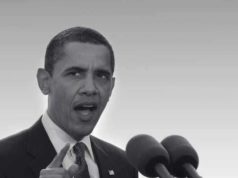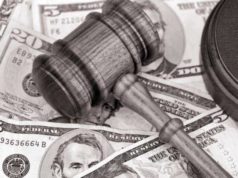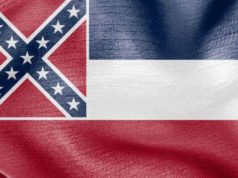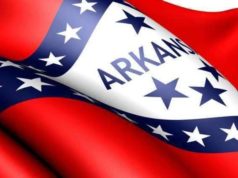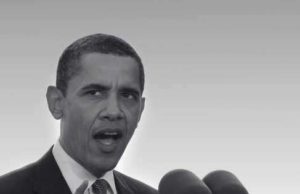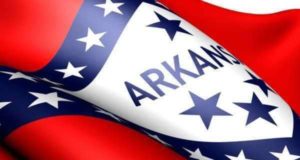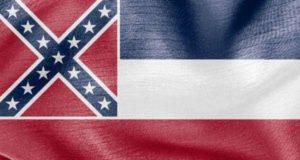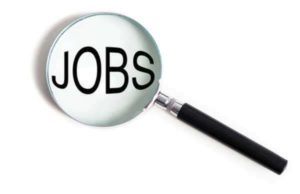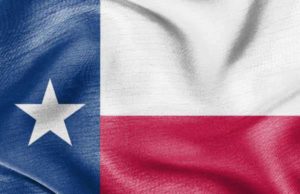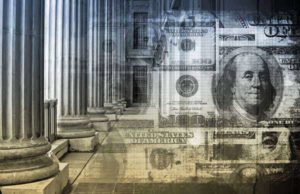
§ 200. Policy and objective
It is the policy and objective of the Congress to use the patent system to promote the utilization of inventions arising from federally supported research or development; to encourage maximum participation of small business firms in federally supported research and development efforts; to promote collaboration between commercial concerns and nonprofit organizations, including universities; to ensure that inventions made by nonprofit organizations and small business firms are used in a manner to promote free competition and enterprise without unduly encumbering future research and discovery; to promote the commercialization and public availability of inventions made in the United States by United States industry and labor; to ensure that the Government obtains sufficient rights in federally supported inventions to meet the needs of the Government and protect the public against nonuse or unreasonable use of inventions; and to minimize the costs of administering policies in this area.
§ 201. Definitions
As used in this chapter
(a) The term Federal agency means any executive agency as defined in section 105 of title 5, and the military departments as defined by section 102 of title 5.
(b) The term funding agreement means any contract, grant, or cooperative agreement entered into between any Federal agency, other than the Tennessee Valley Authority, and any contractor for the performance of experimental, developmental, or research work funded in whole or in part by the Federal Government. Such term includes any assignment, substitution of parties, or subcontract of any type entered into for the performance of experimental, developmental, or research work under a funding agreement as herein defined.
(c) The term contractor means any person, small business firm, or nonprofit organization that is a party to a funding agreement.
(d) The term invention means any invention or discovery which is or may be patentable or otherwise protectable under this title or any novel variety of plant which is or may be protectable under the Plant Variety Protection Act (7 U.S.C. 2321 et seq.).
(e) The term subject invention means any invention of the contractor conceived or first actually reduced to practice in the performance of work under a funding agreement: Provided, That in the case of a variety of plant, the date of determination (as defined in section 41(d)1 of the Plant Variety Protection Act (7 U.S.C. 2401 (d))) must also occur during the period of contract performance.
(f) The term practical application means to manufacture in the case of a composition or product, to practice in the case of a process or method, or to operate in the case of a machine or system; and, in each case, under such conditions as to establish that the invention is being utilized and that its benefits are to the extent permitted by law or Government regulations available to the public on reasonable terms.
(g) The term made when used in relation to any invention means the conception or first actual reduction to practice of such invention.
(h) The term small business firm means a small business concern as defined at section 2 of Public Law 85536 (15 U.S.C. 632) and implementing regulations of the Administrator of the Small Business Administration.
(i) The term nonprofit organization means universities and other institutions of higher education or an organization of the type described in section 501(c)(3) of the Internal Revenue Code of 1986 (26U.S.C. 501 (c)) and exempt from taxation under section 501(a) of the Internal Revenue Code (26U.S.C. 501 (a)) or any nonprofit scientific or educational organization qualified under a State nonprofit organization statute.
§ 202. Disposition of rights
(a) Each nonprofit organization or small business firm may, within a reasonable time after disclosure as required by paragraph (c)(1) of this section, elect to retain title to any subject invention: Provided, however, That a funding agreement may provide otherwise
(i) when the contractor is not located in the United States or does not have a place of business located in the United States or is subject to the control of a foreign government,
(ii) in exceptional circumstances when it is determined by the agency that restriction or elimination of the right to retain title to any subject invention will better promote the policy and objectives of this chapter
(iii) when it is determined by a Government authority which is authorized by statute or Executive order to conduct foreign intelligence or counter-intelligence activities that the restriction or elimination of the right to retain title to any subject invention is necessary to protect the security of such activities or,
(iv) when the funding agreement includes the operation of a Government-owned, contractor-operated facility of the Department of Energy primarily dedicated to that Departments naval nuclear propulsion or weapons related programs and all funding agreement limitations under this subparagraph on the contractors right to elect title to a subject invention are limited to inventions occurring under the above two programs of the Department of Energy. The rights of the nonprofit organization or small business firm shall be subject to the provisions of paragraph (c) of this section and the other provisions of this chapter.
(b)
(1) The rights of the Government under subsection (a) shall not be exercised by a Federal agency unless it first determines that at least one of the conditions identified in clauses (i) through (iv) of subsection (a) exists. Except in the case of subsection (a)(iii), the agency shall file with the Secretary of Commerce, within thirty days after the award of the applicable funding agreement, a copy of such determination. In the case of a determination under subsection (a)(ii), the statement shall include an analysis justifying the determination. In the case of determinations applicable to funding agreements with small business firms, copies shall also be sent to the Chief Counsel for Advocacy of the Small Business Administration. If the Secretary of Commerce believes that any individual determination or pattern of determinations is contrary to the policies and objectives of this chapter or otherwise not in conformance with this chapter, the Secretary shall so advise the head of the agency concerned and the Administrator of the Office of Federal Procurement Policy, and recommend corrective actions.
(2) Whenever the Administrator of the Office of Federal Procurement Policy has determined that one or more Federal agencies are utilizing the authority of clause (i) or (ii) of subsection (a) of this section in a manner that is contrary to the policies and objectives of this chapter, the Administrator is authorized to issue regulations describing classes of situations in which agencies may not exercise the authorities of those clauses.
(3) At least once every 5 years, the Comptroller General shall transmit a report to the Committees on the Judiciary of the Senate and House of Representatives on the manner in which this chapter is being implemented by the agencies and on such other aspects of Government patent policies and practices with respect to federally funded inventions as the Comptroller General believes appropriate.
(c) Each funding agreement with a small business firm or nonprofit organization shall contain appropriate provisions to effectuate the following:
(1) That the contractor disclose each subject invention to the Federal agency within a reasonable time after it becomes known to contractor personnel responsible for the administration of patent matters, and that the Federal Government may receive title to any subject invention not disclosed to it within such time.
(2) That the contractor make a written election within two years after disclosure to the Federal agency (or such additional time as may be approved by the Federal agency) whether the contractor will retain title to a subject invention: Provided, That in any case where publication, on sale, or public use, has initiated the one year statutory period in which valid patent protection can still be obtained in the United States, the period for election may be shortened by the Federal agency to a date that is not more than sixty days prior to the end of the statutory period: And provided further, That the Federal Government may receive title to any subject invention in which the contractor does not elect to retain rights or fails to elect rights within such times.
(3) That a contractor electing rights in a subject invention agrees to file a patent application prior to any statutory bar date that may occur under this title due to publication, on sale, or public use, and shall thereafter file corresponding patent applications in other countries in which it wishes to retain title within reasonable times, and that the Federal Government may receive title to any subject inventions in the United States or other countries in which the contractor has not filed patent applications on the subject invention within such times.
(4) With respect to any invention in which the contractor elects rights, the Federal agency shall have a nonexclusive, nontransferrable, irrevocable, paid-up license to practice or have practiced for or on behalf of the United States any subject invention throughout the world: Provided, That the funding agreement may provide for such additional rights, including the right to assign or have assigned foreign patent rights in the subject invention, as are determined by the agency as necessary for meeting the obligations of the United States under any treaty, international agreement, arrangement of cooperation, memorandum of understanding, or similar arrangement, including military agreement relating to weapons development and production.
(5) The right of the Federal agency to require periodic reporting on the utilization or efforts at obtaining utilization that are being made by the contractor or his licensees or assignees: Provided, That any such information as well as any information on utilization or efforts at obtaining utilization obtained as part of a proceeding under section 203 of this chapter shall be treated by the Federal agency as commercial and financial information obtained from a person and privileged and confidential and not subject to disclosure under section 552 of title 5.
(6) An obligation on the part of the contractor, in the event a United States patent application is filed by or on its behalf or by any assignee of the contractor, to include within the specification of such application and any patent issuing thereon, a statement specifying that the invention was made with Government support and that the Government has certain rights in the invention.
(7) In the case of a nonprofit organization,
(A) a prohibition upon the assignment of rights to a subject invention in the United States without the approval of the Federal agency, except where such assignment is made to an organization which has as one of its primary functions the management of inventions (provided that such assignee shall be subject to the same provisions as the contractor);
(B) a requirement that the contractor share royalties with the inventor;
(C) except with respect to a funding agreement for the operation of a Government-owned-contractor-operated facility, a requirement that the balance of any royalties or income earned by the contractor with respect to subject inventions, after payment of expenses (including payments to inventors) incidental to the administration of subject inventions, be utilized for the support of scientific research or education;
(D) a requirement that, except where it proves infeasible after a reasonable inquiry, in the licensing of subject inventions shall be given to small business firms; and
(E) with respect to a funding agreement for the operation of a Government-owned-contractor-operated facility, requirements
(i) that after payment of patenting costs, licensing costs, payments to inventors, and other expenses incidental to the administration of subject inventions, 100 percent of the balance of any royalties or income earned and retained by the contractor during any fiscal year up to an amount equal to 5 percent of the annual budget of the facility, shall be used by the contractor for scientific research, development, and education consistent with the research and development mission and objectives of the facility, including activities that increase the licensing potential of other inventions of the facility; provided that if said balance exceeds 5 percent of the annual budget of the facility, that 75 percent of such excess shall be paid to the Treasury of the United States and the remaining 25 percent shall be used for the same purposes as described above in this clause (D); and
(ii) that, to the extent it provides the most effective technology transfer, the licensing of subject inventions shall be administered by contractor employees on location at the facility.
(d) If a contractor does not elect to retain title to a subject invention in cases subject to this section, the Federal agency may consider and after consultation with the contractor grant requests for retention of rights by the inventor subject to the provisions of this Act and regulations promulgated hereunder.
(e) In any case when a Federal employee is a coinventor of any invention made with a nonprofit organization, a small business firm, or a non-Federal inventor, the Federal agency employing such coinventor may, for the purpose of consolidating rights in the invention and if it finds that it would expedite the development of the invention
(1) license or assign whatever rights it may acquire in the subject invention to the nonprofit organization, small business firm, or non-Federal inventor in accordance with the provisions of this chapter; or
(2) acquire any rights in the subject invention from the nonprofit organization, small business firm, or non-Federal inventor, but only to the extent the party from whom the rights are acquired voluntarily enters into the transaction and no other transaction under this chapter is conditioned on such acquisition.
(f)
(1) No funding agreement with a small business firm or nonprofit organization shall contain a provision allowing a Federal agency to require the licensing to third parties of inventions owned by the contractor that are not subject inventions unless such provision has been approved by the head of the agency and a written justification has been signed by the head of the agency. Any such provision shall clearly state whether the licensing may be required in connection with the practice of a subject invention, a specifically identified work object, or both. The head of the agency may not delegate the authority to approve provisions or sign justifications required by this paragraph.
(2) A Federal agency shall not require the licensing of third parties under any such provision unless the head of the agency determines that the use of the invention by others is necessary for the practice of a subject invention or for the use of a work object of the funding agreement and that such action is necessary to achieve the practical application of the subject invention or work object. Any such determination shall be on the record after an opportunity for an agency hearing. Any action commenced for judicial review of such determination shall be brought within sixty days after notification of such determination.
§ 203. March-in rights
(a) With respect to any subject invention in which a small business firm or nonprofit organization has acquired title under this chapter, the Federal agency under whose funding agreement the subject invention was made shall have the right, in accordance with such procedures as are provided in regulations promulgated hereunder to require the contractor, an assignee or exclusive licensee of a subject invention to grant a nonexclusive, partially exclusive, or exclusive license in any field of use to a responsible applicant or applicants, upon terms that are reasonable under the circumstances, and if the contractor, assignee, or exclusive licensee refuses such request, to grant such a license itself, if the Federal agency determines that such
(1) action is necessary because the contractor or assignee has not taken, or is not expected to take within a reasonable time, effective steps to achieve practical application of the subject invention in such field of use;
(2) action is necessary to alleviate health or safety needs which are not reasonably satisfied by the contractor, assignee, or their licensees;
(3) action is necessary to meet requirements for public use specified by Federal regulations and such requirements are not reasonably satisfied by the contractor, assignee, or licensees; or
(b) A determination pursuant to this section or section 202 (b)(4) shall not be subject to the Contract Disputes Act (41 U.S.C. 601 et seq.). An administrative appeals procedure shall be established by regulations promulgated in accordance with section 206. Additionally, any contractor, inventor, assignee, or exclusive licensee adversely affected by a determination under this section may, at any time within sixty days after the determination is issued, file a petition in the United States Court of Federal Claims, which shall have jurisdiction to determine the appeal on the record and to affirm, reverse, remand or modify, as appropriate, the determination of the Federal agency. In cases described in paragraphs (1) and (3) of subsection (a), the agencys determination shall be held in abeyance pending the exhaustion of appeals or petitions filed under the preceding sentence.
§ 204. Preference for United States industry
Notwithstanding any other provision of this chapter, no small business firm or nonprofit organization which receives title to any subject invention and no assignee of any such small business firm or nonprofit organization shall grant to any person the exclusive right to use or sell any subject invention in the United States unless such person agrees that any products embodying the subject invention or produced through the use of the subject invention will be manufactured substantially in the United States. However, in individual cases, the requirement for such an agreement may be waived by the Federal agency under whose funding agreement the invention was made upon a showing by the small business firm, nonprofit organization, or assignee that reasonable but unsuccessful efforts have been made to grant licenses on similar terms to potential licensees that would be likely to manufacture substantially in the United States or that under the circumstances domestic manufacture is not commercially feasible.
§ 205. Confidentiality
Federal agencies are authorized to withhold from disclosure to the public information disclosing any invention in which the Federal Government owns or may own a right, title, or interest (including a nonexclusive license) for a reasonable time in order for a patent application to be filed. Furthermore, Federal agencies shall not be required to release copies of any document which is part of an application for patent filed with the United States Patent and Trademark Office or with any foreign patent office.
§ 206. Uniform clauses and regulations
The Secretary of Commerce may issue regulations which may be made applicable to Federal agencies implementing the provisions of sections 202 through 204 of this chapter and shall establish standard funding agreement provisions required under this chapter. The regulations and the standard funding agreement shall be subject to public comment before their issuance.
§ 207. Domestic and foreign protection of federally owned inventions
(a) Each Federal agency is authorized to
(1) apply for, obtain, and maintain patents or other forms of protection in the United States and in foreign countries on inventions in which the Federal Government owns a right, title, or interest;
(2) grant nonexclusive, exclusive, or partially exclusive licenses under federally owned inventions, royalty-free or for royalties or other consideration, and on such terms and conditions, including the grant to the licensee of the right of enforcement pursuant to the provisions of chapter 29 of this title as determined appropriate in the public interest;
(3) undertake all other suitable and necessary steps to protect and administer rights to federally owned inventions on behalf of the Federal Government either directly or through contract, including acquiring rights for and administering royalties to the Federal Government in any invention, but only to the extent the party from whom the rights are acquired voluntarily enters into the transaction, to facilitate the licensing of a federally owned invention; and
(4) transfer custody and administration, in whole or in part, to another Federal agency, of the right, title, or interest in any federally owned invention.
(b) For the purpose of assuring the effective management of Government-owned inventions, the Secretary of Commerce is authorized to
(1) assist Federal agency efforts to promote the licensing and utilization of Government-owned inventions;
(2) assist Federal agencies in seeking protection and maintaining inventions in foreign countries, including the payment of fees and costs connected therewith; and
(3) consult with and advise Federal agencies as to areas of science and technology research and development with potential for commercial utilization.
§ 208. Regulations governing Federal licensing


